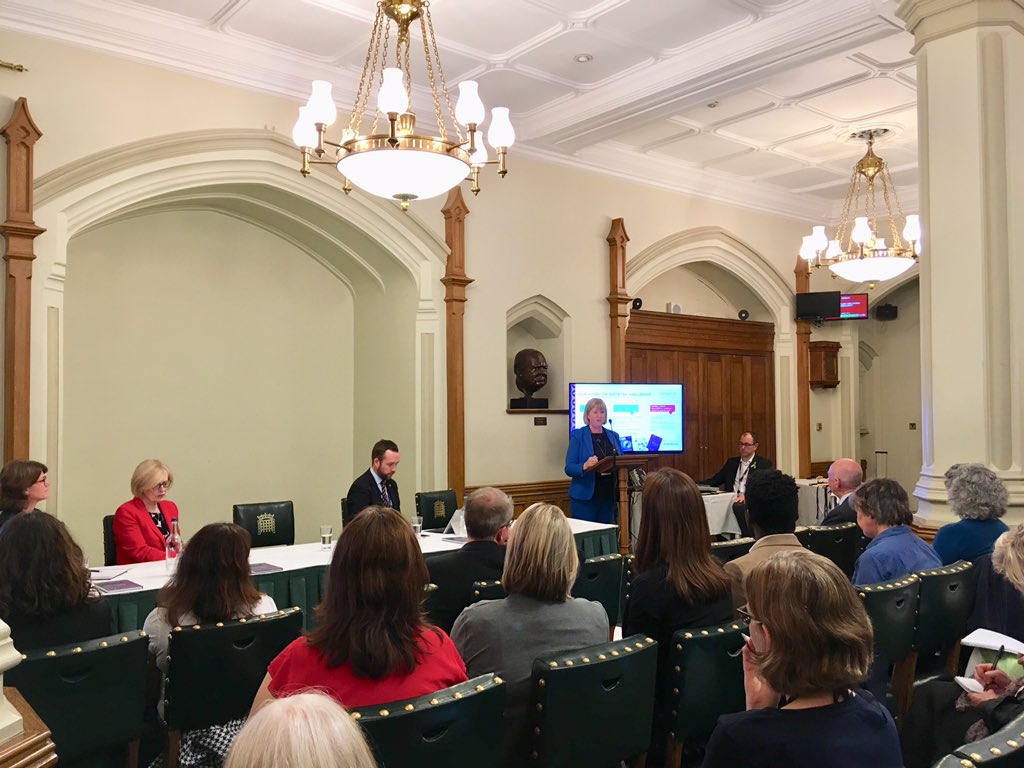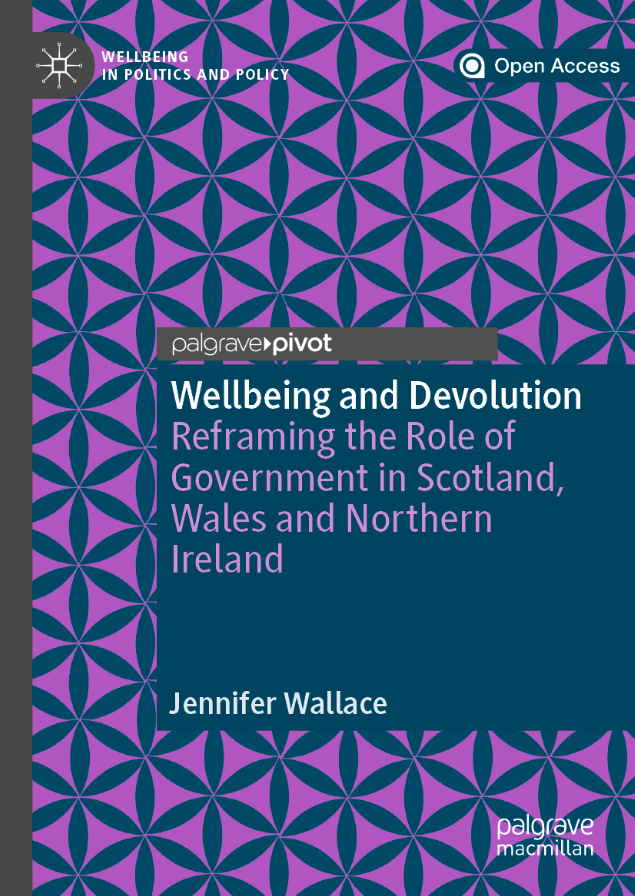Wellbeing: a guiding star for governments?
Posted on 21 May 2019 Categories: Blog, New economic models, The state we want, Wellbeing, Event reports
by Caroline Hartnell
The devolved governments of Scotland, Wales and Northern Ireland have all three put wellbeing at the heart of their approach – codifying their values and goals within wellbeing frameworks and redesigning government to put the wellbeing of citizens at the centre of public services. Is this approach leading to a radically different sort of government? This was the central question to be answered by a meeting on ‘Wellbeing and Devolution’, held at the House of Commons on Wednesday 15 May, sponsored by MP Jo Swinson. The answer that came out of the meeting was a clear ‘yes’.

The first speaker was Jennifer Wallace, head of policy at Carnegie UK Trust, whose recently published open access book Wellbeing and Devolution: Reframing the Role of Governments in Scotland, Wales and Northern Ireland explores some key issues. How do the devolved governments balance the core elements of societal wellbeing (economic, social and environmental outcomes)? Do the wellbeing frameworks represent a genuine attempt to think differently about how to plan and organise public services? If so, what early indications are there of the impact this is having on people’s lives?
 There are three levels of wellbeing, said Wallace: personal wellbeing, community wellbeing and societal wellbeing. It is the last that Carnegie UK has been working on. It requires us to think about equality and about a fair impact on future generations, and it must be more than the sum of its parts.
There are three levels of wellbeing, said Wallace: personal wellbeing, community wellbeing and societal wellbeing. It is the last that Carnegie UK has been working on. It requires us to think about equality and about a fair impact on future generations, and it must be more than the sum of its parts.
Governments create wellbeing frameworks to operationalise wellbeing, said Wallace. These include a mission statement, outcomes and indicators. There’s a lot of buzz around wellbeing in Bhutan and New Zealand, she said, but the countries that are furthest advanced are Scotland and Wales. While Scotland sees wellbeing as a performance management tool, Wales sees it in terms of sustainability. In Northern Ireland it’s about a shared conversation.
In Northern Ireland, sadly, progress has ground to a halt following the suspension of the Northern Ireland Assembly, said Aideen McGinley, chair of the Embedding Wellbeing in Northern Ireland Advisory Group. But all parties were onside, and what is clear is that there is no better way to get people working together again than focusing on wellbeing.
In Scotland, said Jennie Barugh of the Scottish Government, ‘the National Performance Framework sets out the vision of the country we want to be’. This includes a purpose statement, a value statement, 11 national outcomes plus 81 indicators (none of which I’d want to get rid of, said Wallace). The purpose is to create a more successful country where everyone has the opportunity to flourish. ‘There is cross-party consensus in the Scottish Parliament on this. Politics is about how you deliver it.’ If this vision is to be achieved, ‘we need to be willing to collaborate, to value lived experience, and to engage with complexity’. This means being more open and accepting that government doesn’t have all the ideas. Those in government should see their role as curating the National Performance Framework, creating conditions for others to play their part.
How do we build awareness and make sure the culture endures, asked Barugh. The framework is highly motivational, she said. It creates purpose, and needs to be linked to people’s day-to-day work and what they’re achieving. One issue is how to connect spending decisions with impact on wellbeing. In all things, ‘wellbeing is the guiding star’.
Wales’s National Conversation on The Wales We Want was launched by the Welsh government and Sustain Wales in 2014, said Jacob Ellis of Wales’s Office of the Future Generations Commissioner. In the first year it recruited 150 Futures Champions and brought together 6,474 individuals, who took part in over 100 conversations across Wales resulting in almost 1,000 responses in the form of reports, videos, postcards, drawings and surveys. As a result of these conversations, six wellbeing goals were agreed: a prosperous, healthier, resilient, more equal Wales, with cohesive communities and a vibrant culture and thriving Welsh language. Following the launch of the Sustainable Development Goals (SDGs) a year later, a seventh was added: a globally responsible Wales. The Wellbeing for Future Generations Act was the product of this.

In Wales sustainable development and wellbeing are seen as closely linked. Forty-six national indicators are mapped against the SDGs. A sustainable community must rest on cultural, economic, social and environmental pillars, all of which are equally important.
Four ways of working are seen as key to achieving these goals: involving people, thinking long term, integration and collaboration. The Art of the Possible is a key programme of the Future Generations Commissioner for Wales. It is about helping public bodies to achieve the goals set out in the Wellbeing for Future Generations Act and the SDGs, enabling people implementing policy to ask themselves: what can I do to help us on the journey to the Wales we want and towards each goal?
Will government look different if wellbeing is its guiding star? The goals, values and inclusivity of the devolved governments of Scotland and Wales could hardly look more different from the austerity-obsessed UK government, where goals are framed in the narrowest economic terms and austerity continually pulls government away from wellbeing and back to crisis management.
Posted on 21 May 2019 Categories: Blog, New economic models, The state we want, Wellbeing, Event reports
